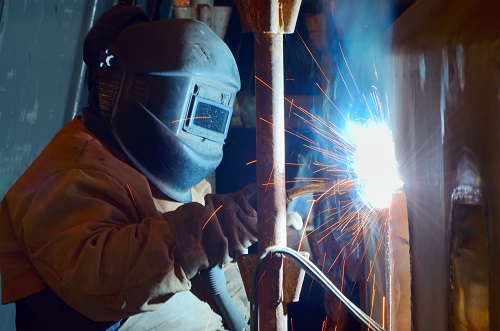All maritime work is potentially hazardous, but some jobs are more dangerous than others. This includes maritime hot work, which can result in serious injury or even death if the proper safety measures aren’t followed.

The National Fire Protection Association, or NFPA, defines hot work as any activity aboard a vessel that involves:
Hot work is especially dangerous onboard vessels because it is usually performed in confined spaces.
According to OSHA, some of the risks to maritime workers performing hot work (or working in spaces adjacent to hot work) are exposed to include:
Avoiding Maritime Hot Work Accidents
Here are ways in which maritime hot work accidents can be avoided:
Regular Inspections
Before hot work can begin, the work area must be inspected by a Certified Marine Chemist or a Shipyard Competent Person. Since work area conditions are subject to change, inspections should be carried out as often as necessary.
If changes are discovered that could make the area less safe (such as missing safety equipment, improper ventilation, high temperatures, material spills, leaking pipes or hoses, etc.) work must be stopped immediately until the problems are addressed.
Proper Ventilation
Maritime hot work operations have the potential to expose workers to toxic gases or metal fumes (such as zinc, lead, cadmium, chromium, beryllium, mercury, nickel, arsenic, and copper). Proper ventilation of a hot workspace is essential to keeping workers safe.
This includes:
Proper Firefighting Equipment and Training
Hot work in the enclosed spaces aboard vessels exposes maritime time workers to the danger of fire caused by the ignition of flammable or combustible materials or from leaks of flammable gas from the hot work equipment. Regular safety inspections and employee training, as well as proper fire safety equipment and protocols (such as assigning a dedicated “fire watch” to be on the lookout for potential hazards) are vital to keeping workers performing maritime hot work safe. Proper ventilation also reduces the risks of fire.
Eliminating Slip and Fall Hazards
Slip and fall accidents are a leading cause of maritime injuries. Tripping or falling while using a welding torch or other potentially dangerous equipment has the potential for disaster. That’s why it’s important to eliminate as many trip and fall hazards as possible and make sure stairs, ladders, scaffolds and lifts are properly maintained. Hot work areas should be inspected for fall hazards before work begins.
Proper Personal Safety Equipment
Since hot work has the potential to cause illness or injury, the proper personal protective equipment (PPE) should be worn at all times. Depending on the type of hot work being performed, PPE may include:
Maritime Hot Work Injury Attorneys
When maritime employers fail to take the proper safety precautions to protect workers in hot work areas, severe injury and even death can result.
Lambert Zainey has helped many maritime workers obtain the compensation they deserve after being injured in a hot work accident. One of our recent victories includes a large settlement for a welder assigned to a construction and salvage barge flotilla who was injured when an unsecured ladder he was working on collapsed.
Our dedication to our clients’ cause, extensive maritime experience and nationally recognized legal expertise make us one of the top maritime law firms in the U.S. If you’re a maritime worker who was injured in a hot work accident that resulted from negligence and/or the unseaworthiness of a vessel, the Jones Act and other maritime laws give you the right to seek compensation for your damages.
We are here to protect your rights. Contact Lambert Zainey without delay to schedule a free, no obligation consultation with a leading maritime injury attorney to discuss your case, your rights and your legal options.
